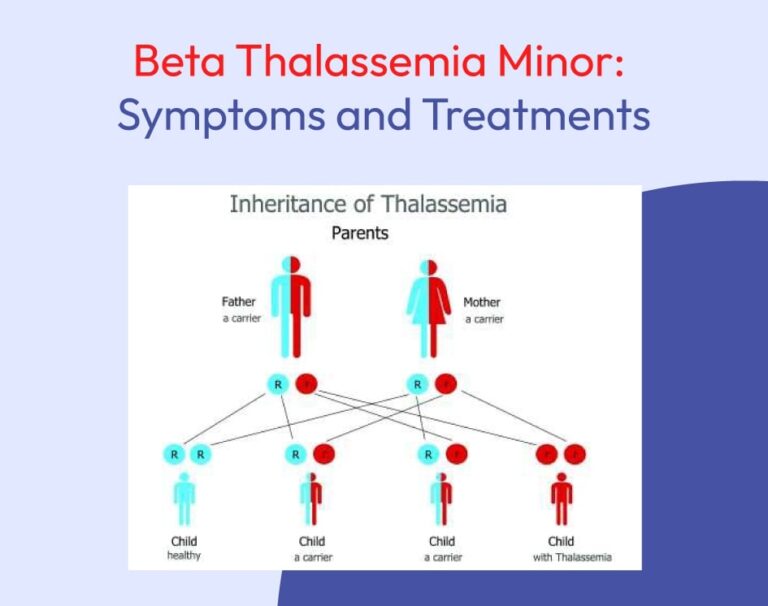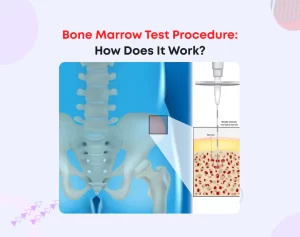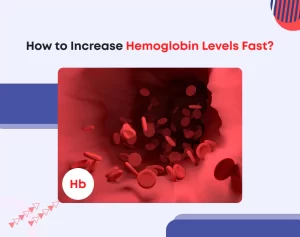
Beta Thalassemia Minor: Symptoms and Treatments
Have you ever wondered about the Beta Thalassemia Minor issue? If yes, then consider this your ultimate destination! Beta thalassemia is an inherited blood disorder that hampers the body’s capacity to produce beta-globin. It is a vital protein required for creating hemoglobin and red blood cells. This condition may lead to symptoms of anemia. There are several types of beta thalassemia, including beta thalassemia major, beta thalassemia intermedia, and beta thalassemia minor
In this post, we’ll unravel everything you need to know about Beta Thalassemia Minor. From its subtle signs to the available treatment options, let us see everything.
Understanding Beta Thalassemia Minor
Another name for Beta Thalassemia Minor is the Beta Thalassemia trait. It is a genetic condition characterized by reduced production of hemoglobin. Hemoglobin, found in red blood cells, serves as the vital carrier of oxygen across your entire body. The cells of your body utilize the oxygen supplied by red blood cells to generate energy.
Thalassemia may lead to anemia, resulting in fatigue. Beta Thalassemia Major is a more severe form of the condition. But Beta Thalassemia Minor typically presents with milder symptoms or may even be asymptomatic. In more severe cases, individuals with thalassemia may require regular blood transfusions. However, those with mild forms of the condition may not necessitate treatment. For individuals with mild thalassemia experiencing fatigue, adopting a healthy diet and regular exercise regimen can help manage symptoms.
How can Beta Thalassemia Affect my Body?
Beta thalassemia affects the body by hindering the production of beta-globin. What is beta-globin? It is a crucial protein needed for making hemoglobin and red blood cells. This deficiency results in reduced oxygen transport throughout the body. It leads to symptoms such as anemia, fatigue, pale skin, and shortness of breath. In more severe cases, complications like bone deformities, growth retardation, and organ damage may occur. Additionally, individuals with beta thalassemia may experience an increased risk of infections and other health issues due to the decreased functionality of red blood cells.
What Populations are at Risk for Beta Thalassemia?
People who inherit mutated genes from both parents are at risk for Beta Thalassemia. Since it is an autosomal recessive disorder, individuals must inherit two copies of the mutated gene – one from each parent – to develop the condition. Therefore, those with a family history of beta thalassemia can be affected. Those from populations with a higher prevalence of the disorder, such as those of Mediterranean, Southeast Asian, Middle Eastern, and African descent, are at increased risk. Additionally, couples with a family history of thalassemia may undergo genetic counseling. Doing this will assess the risk of passing the condition to their children.
Symptoms of Beta Thalassemia Minor
Those with Beta Thalassemia Minor might not experience any signs or symptoms. Yet, some may exhibit mild signs like:
Fatigue
Feeling tired or weak despite adequate rest and sleep.
Pale Skin
Skin may appear paler than usual due to decreased red blood cell production.
Shortness of Breath
Difficulty breathing, especially during physical activity.
Mild Anemia
A slight decrease in red blood cell count leads to mild anemia.
Do you or someone you know experience these symptoms? If so, it is essential to consult a healthcare professional for proper evaluation and diagnosis.
Why does Beta Thalassemia Minor Issue Arise?
Here, we have listed a few causes of Beta Thalassemia Minor:
Genetic Inheritance
It is inherited from one or both parents who carry the beta thalassemia gene. If both parents are carriers, they are more likely to pass the condition to their offspring.
Gene Mutations
Specific mutations in the HBB gene, responsible for producing hemoglobin, can lead to this problem. These mutations affect the normal production of hemoglobin, resulting in the characteristic symptoms of the condition.
Now that you know the reasons, we will talk about the diagnosis of this illness.
Diagnosis of Beta Thalassemia Minor
Diagnosing Beta Thalassemia Minor typically involves:
Blood Tests
Go for blood tests such as a complete blood count (CBC) and hemoglobin electrophoresis. These tests can help identify abnormal hemoglobin levels characteristic of the condition.
Genetic Testing
Genetic testing may be recommended to confirm the presence of specific gene mutations associated with Beta Thalassemia Minor.
Once diagnosed, individuals with this illness can work with their healthcare providers.
Treatment Options for Beta Thalassemia Minor
Beta Thalassemia Minor does not usually require specific treatment. Still, one may benefit from the following:
Monitoring
Regular monitoring of hemoglobin levels and overall health to detect any changes or complications.
Iron Supplements
Iron supplements may sometimes be prescribed if iron deficiency anemia coexists with this disease.
Genetic Counseling
Genetic counseling may be recommended for individuals. It is especially advised for those with Beta Thalassemia Minor who are planning to start a family. This can help assess the risk of passing the condition to future generations and explore available options.
It is necessary to maintain open communication with their doctors. Besides, follow recommended guidelines for optimal health and well-being.
Closing Thoughts
Beta Thalassemia Minor is a genetic condition recognized by a reduction in hemoglobin production. Moreover, it leads to mild symptoms or no symptoms at all in some cases. Right now, there is no specific treatment for this problem. However, individuals can benefit from regular monitoring and iron supplementation if needed. Genetic counseling for family planning purposes is also advisable. Those with Beta Thalassemia Minor can lead healthy and fulfilling lives by staying informed and proactive.






